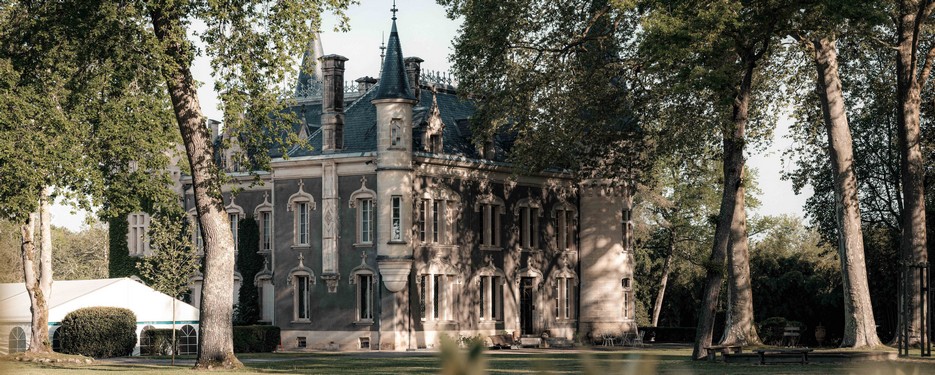- ACCUEIL
- Le Château
- Chambres d'Hôtes
- Gîtes
- Evénements
- Activités
- Actualités
- Contact
- ENGLISH
- SPANISH
- GERMAN
The Eugénie De Montijo Suite
Empress Eugénie de Montijo left her mark in Les Landes, so it’s only natural that she has a place at Château Belle Epoque.
The Eugénie De Montijo Suite is bright, spacious and peaceful. It’s located on the first floor over the breakfast room and the snooker room. It’s composed of 2 rooms, a bathroom and WC. One of the rooms looks over the French Garden and the other is a corner room looking over both the estate gardens in front of the château and the French Garden.
Enjoy free access to the swimming pool, tennis court, boules pitch, play area… and many more activities that are available near to the Belle Epoque Estate.
The Eugénie De Montijo Suite for 2-5 guests
- Located on the 1st floor
- View over the French Garden and the estate gardens
- Area 60 m²
- Two communicating rooms
- One room with a "Queen Size" double bed
- One room with a double bed and two single beds
- WIFI
- Bathroom and WC
- Heated towel rail and hairdryer
From the 5th to the 18th July and
From the 23th August to the 5th September 2025
From the 12th April to the 4th July and
From the 6th September to the 27th October 2025
From the 19th July
to
the 22 August 2025
You can also visit our other rooms to make the best choice for you:
- The Napoléon III Suite accommodate 2 - 6 guests
- The Round Tower, The Bao-Dai room and the Louis Napoléon rooms accommodate 2 - 3 guests
Book the Eugénie De Montijo Suite
Book the Eugénie De Montijo Suite at Château Belle Epoque
Who was Eugénie de Montijo ?
Eugénie de Montijo, countess of Teba, was born in Grenada in Spain in 1826 and died in England in 1920. She was the wife of Louis Napoléon Bonaparte, also known as Napoléon III, and the last Empress of France.
She came to France in 1834 and would often spend time with her mother and her sister in Biarritz. She was educated in Paris at the Sacré-Coeur convent, and she also had two renowned tutors: Stendhal and Mérimée.
In 1853 she married Louis Napoléon Bonaparte.
In 1854 Napoléon III built the villa Eugénie at Biarritz for them, which is now known as the Hotel du Palais.
In 1861 the spa resort Eugénie-les-Bains was created and named in her honour.
She was beautiful, cultured and her strong character made advances in women’s rights. For example, she was involved in allowing Madeleine Brès (first women doctor) to be enrolled in Medical school.
She introduced to the court Marthe-Alice Pouypoudat, a farmer of Les Landes (recognised as one of the first great chefs of France) and her recipe for Pain Farci en Croûte Belle Crinoline. They remained friends.
Eugénie would be instrumental in the recovery of Alsace Lorraine in 1918, by giving a letter to Clemenceau dating from 1870. The letter was written by the King of Prussia Guillaume 1st, and was proof that Alsace Lorraine had been annexed by the Germans.








